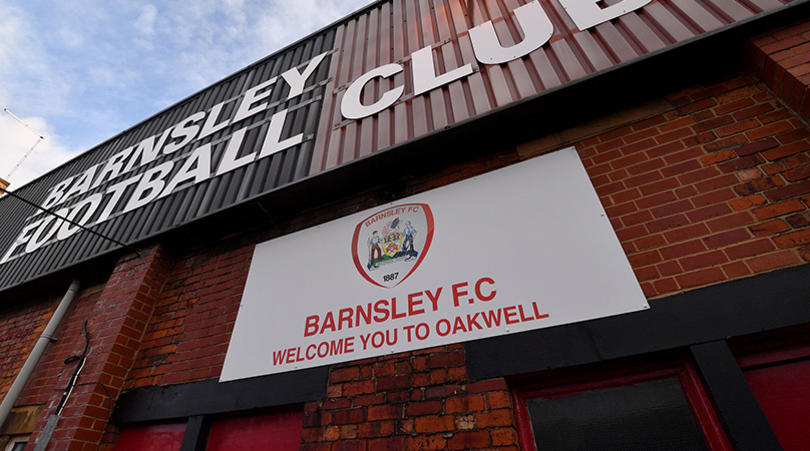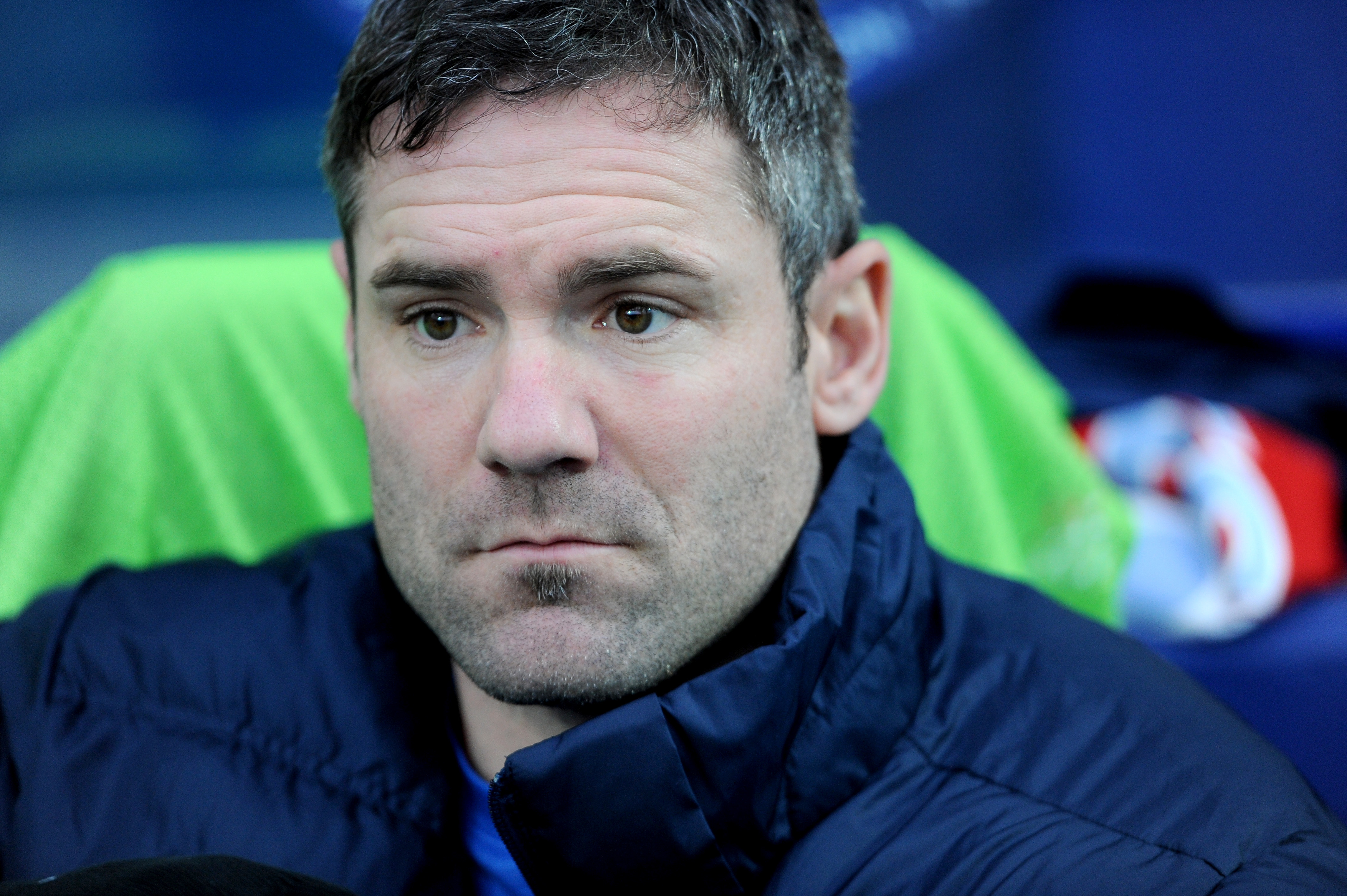What’s it like to… have your career ruined by injuries?
In 2002, Matt Piper was on top of the world – club history made at Leicester, and a multimillion-pound move to Sunderland as his reward. But then his life took a darker turn for the worse
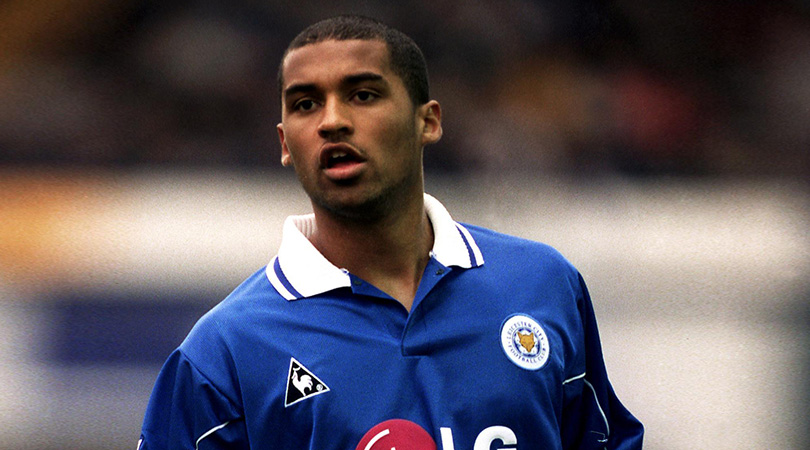
The doctor is telling you that you need to be sectioned. You don’t even know what being sectioned means. Your mum is there begging him otherwise. She’s crying, your dad doesn’t know what to do so he’s just not talking to you, and then your brother calls you a loser. You used to be my hero when you were playing in the Premier League. Now look at you.
That was rock bottom.
To explain how it all happened is a long story – it wasn’t always like this. Three years before, I’d ended my career at Sunderland aged 24 after the 16th operation on my knees; eight on each one.
People think it’s weird when I say that retirement was a massive relief. I didn’t have to get my hopes up anymore. You come back 16 times, and then never have to try again. It’s such a weight off your shoulders.
Wondering what you’re going to do next is an exciting feeling when you first have it; when you’ve got a bit of money in the bank and you’re free. At that moment in time, I was buzzing.
But when you’ve still got that feeling two years later – when you’ve got no job, your money’s running out – it’s not exciting anymore. It’s panic. You have no idea where to turn next.
To explain how a former Premier League footballer can get into a situation like that, I’m going to start with where it all began for me at Leicester.
The best features, fun and footballing quizzes, straight to your inbox every week.
Outfoxed
Peter Taylor told me I wasn’t good enough to get in his first team.
When you first hear that, it destroys you. He was giving contracts out to others who were the same age, and said to me: “We’re going to give you a contract, but it’s not anything like what we’ve done for others. We think they’ve got a chance of getting in the first team. We think you’ll be a saleable asset in the near future.”
I was 19 then. I signed the contract straight away. You feel down for 25 minutes, but then you drive away from the training thinking that you’ve got another year to prove him wrong. I did that within about two weeks. He got sacked and Garry Parker, who always believed in me as my reserve team manager, gave me a debut against Leeds in the League Cup. We lost 6-0.
Leicester were having a horrible time in the Premier League, but that made it easier for a young player like me. The first team were getting booed off the pitch every week, but I was running at people, getting bums off seats.
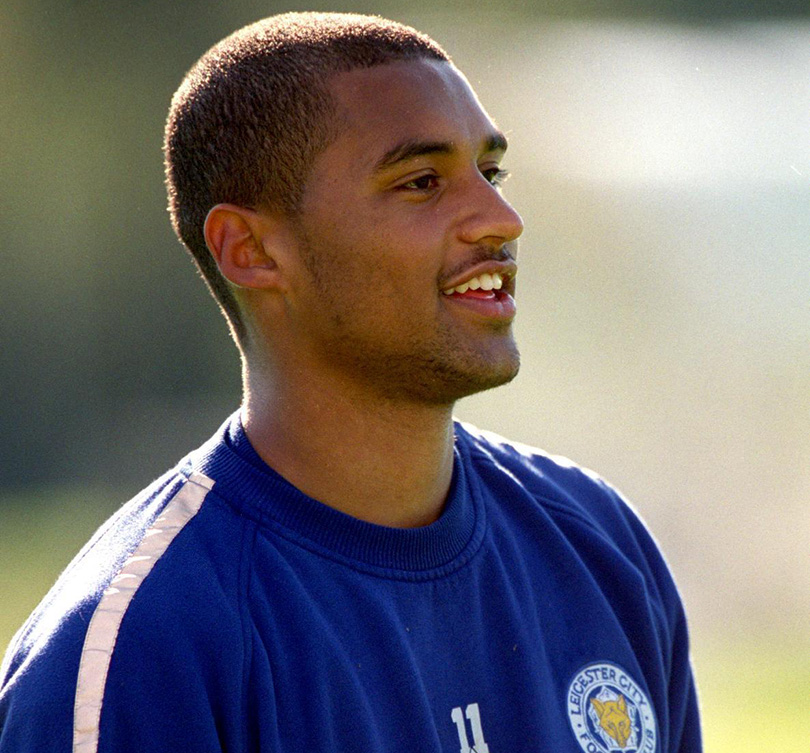
I actually only made 18 appearances for Leicester in 2001/02, but when I look back on my career now, one goal changed everything – the last one at Filbert Street.
Dave Bassett and Micky Adams had sent me out on loan to Mansfield because they wanted experience in their relegation battle, but they recalled me after eight games and I got man of the match in my first game back. It got to the end of the season and Bassett called me into his office a week before the Tottenham game.
The year’s contract I’d got under Peter Taylor was running out, and I was playing in the Premier League on £375 a week. “We need to get you down on a new deal,” he said. “Have you got an agent? You don’t want to get stitched up.”
I didn’t even know how to get one. I saw Dean Sturridge outside, and he told me that his brother had just finished playing and was now working as an agent. So on the Wednesday of that week I went in with Simon Sturridge – Daniel’s dad – and Bassett went old-school Wimbledon on us. It was like an artist at work.
“I told you to bring an agent in who’d understand and not take the piss,” he said. “I’ve got a striker up front, a Scottish international, who’s not even on five grand a week.” Simon had thought we should start at five, hoping to get three or four out of it. I didn’t care – I just wanted a contract. Bassett sent him packing and told me to bring my dad along instead.
He’s never met my old man before, and he didn’t know what was coming. We walked in and my dad, a Londoner, turned the cockney on. “Good afternoon Mr Bassett. Before you say anything, let me tell you something about this boy. He’s been here since he was eight, and has never asked for as much as a f***ing chocolate biscuit.” My head was in my hands – but Bassett liked it. I got the contract, but he still had a problem – I hadn’t scored a Premier League goal yet, and it worried him.
“I tell you what Mr Bassett, he’ll score against Tottenham at the weekend,” my dad said.
years ago today, Leicester-born Matt Piper scored the final goal at Filbert Street in a 2-1 win over Tottenham... pic.twitter.com/SYN7oMZxpS— Leicester City (@LCFC) May 11, 2017
Things change
We’d been relegated, but everything was going well: I’d got a really good three-year contract, and the club were ringing me throughout the summer telling me that they’d sold the most amount of shirts ever with ‘Piper 29’ on. They were putting me on promotional posters and I was loving life: it felt like they were trying to build the team around me.
But then it got to the first game of the season, and I’d been ill the night before. Matt Elliott was ill too, but Micky (who was manager by this point) thought he could handle it. I could go home and put my feet up – there was bigger and better things coming for me on Monday morning, he said. I thought I’d been called up for England U21s. Buzzing.
Monday morning came. I’ll always remember his start: “You know, Pipes, things happen so quickly in football...” I still thought he was going to tell me that I was in David Platt’s U21s. And then it came: “The club has sold you to Sunderland for £3.5 million.”
I was gobsmacked and told him I didn’t want to leave. I’d been there since I was a kid. I’d only just got in the first team. He told me I deserved better than Division One; to go to the Premier League, express myself and use Sunderland as a stepping stone. “One day you could play for someone like Tottenham” – that’s what he said to me.
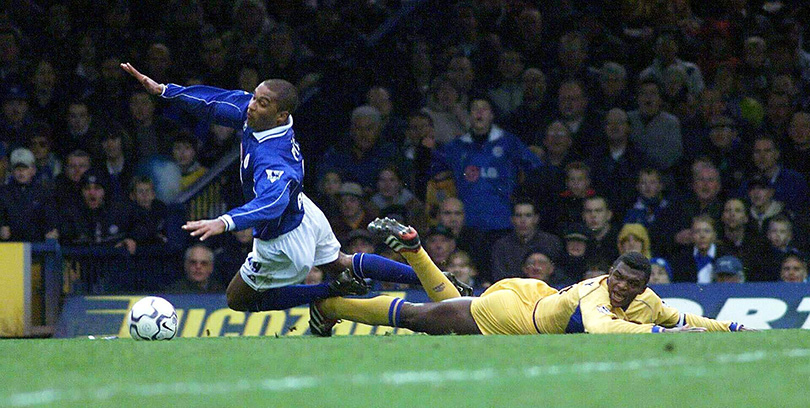
To cut a long story short, I went up to Sunderland, met Peter Reid and really liked him. They offered me five times more than what I was on at Leicester – and I said no. I went back to Leicester the next day and Micky Adams was kicking off. He said I wasn’t training until I’d signed with them.
The next day came. “Gordon Strachan’s put a £2.5m offer in from Southampton, and the club have accepted that as well.” How many times did I have to tell him that I didn’t want to leave? I liked Gordon, but not as much as Peter Reid, so I told Southampton no as well. Leicester still weren’t letting me train, and Micky called me back into his office for one final time. It was a big heart to heart – we were on the brink of administration. And then it got personal. “Think of all those people who’ve been here as long as you who’ll lose their jobs.”
That’s what tipped me over the edge. So I went to Sunderland.
Mr. Glass
The people of Sunderland were easily the best thing about my move there. Everyone’s your mate, everyone’s talking to you. I bought a house on the seafront, hearing the waves in the morning. For the first 13 games, I thought it was paradise.
I’d had one operation on my knee by then, but had no idea about the condition called lax ligaments that went on to end my career. I only found out towards the end what it was that had caused me so much distress.
With the position I played, you’d make sudden movements and quickly change position. It was old-fashioned wing play, really, and my ligaments weren’t strong enough to keep my knee capsule in place. You’d get back to playing and then two or three weeks later it’d be bang… gone again. For four years in a row.
The first time I got injured at Sunderland was nothing more than a niggle, so I came back in a reserve game against Blackburn to get some fitness. I was doing well against Jay McEveley, had beaten him for pace and crossed one in. Just before the ball was headed – that shows you how late it was – he smashed me.
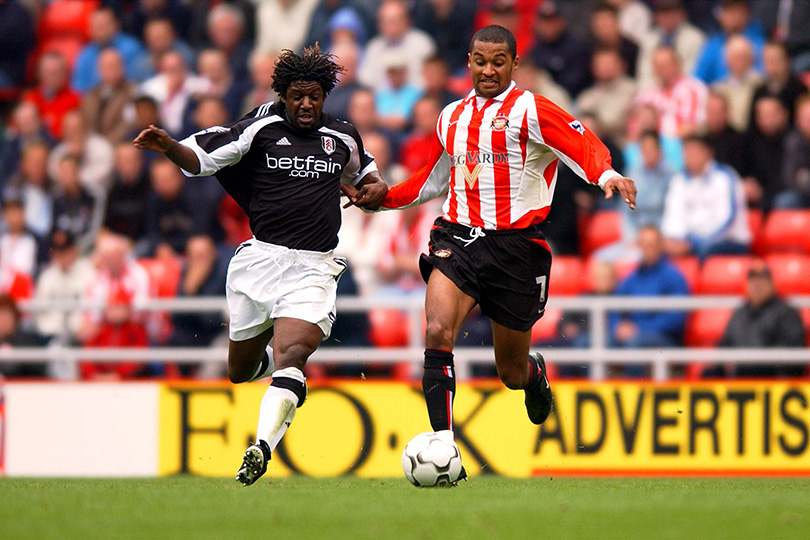
My knee locked and the ligaments were damaged. From them on it was hell: I probably managed six or seven games in a row as my longest time fit in the first team. The knee would go again and again. I got injured on my left side too, and that would keep going as well.
You can go a couple of ways when you’re injured so much. I used to take the self-deprecating approach. You’d get the jokes coming in from staff and players: “F***ing hell Pipes, if you were a horse you’d have been put down by now!”
‘Sicknote’ was my nickname, and ‘Mr. Glass’ too, because unfortunately the film Unbreakable came out about that time. So what you do is start making those jokes before other people do – I became that guy. But when you come away from the training ground, there’s no lower point than if you’re injured all the time. You’re lonely.
Panic attack
I used to go in early and swim 50 lengths before I went in to see the physio and start my rehabilitation with him. I was always dedicated to getting back fit.
I don’t think I’ve ever told anyone this before, but I had a panic attack in the pool – the only one I’ve ever had. It’s all of the stress that builds up inside you when you’re injured, and you can’t do anything about it. At the time I didn’t want to tell anyone because I was worried that the club was going to get rid of me. We didn’t have a sports psychologist or anyone who we could talk to back then.
They were difficult times, but as most footballers do, you put a front on and don’t let anyone know how you’re truly feeling. That was my lowest time in football. You think you’re never going to get back fit, and when you do you’re buzzing again, only to be out two weeks later.
Then the jokes continue. They’re trying to have a laugh with you, but they don’t realise that every, “F***ing hell, Mr Glass!” kills you a little bit more inside.
I finally got sent to America and a surgeon called Richard Steadman, who did NBA players, olympians, and had basically saved the careers of Alan Shearer and Ruud van Nistelrooy. “Listen,” he said, “I could tell you a lie or the truth. What you have to do is weigh up how much you can earn in the next year and ask yourself it it’s worth not being able to walk by the time you’re 35 or 40.”
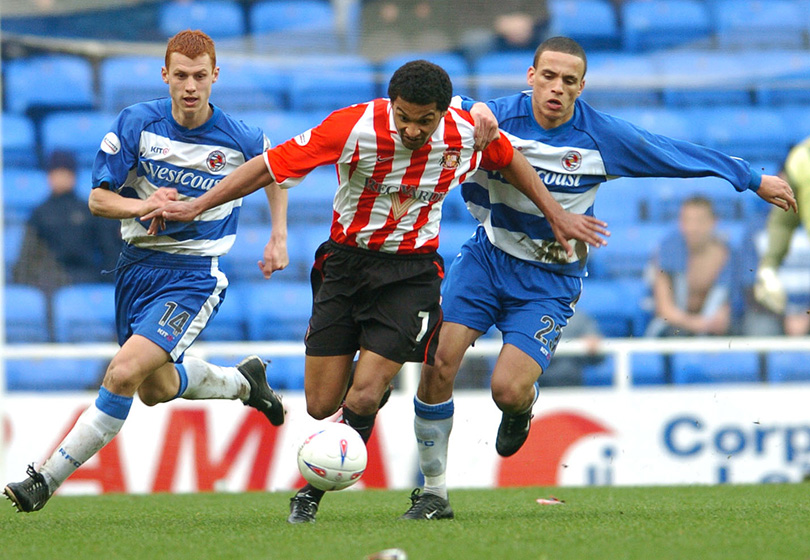
My life has never been predicated on money. I had young kids, and I wanted to be a healthy father. I went back, and by then my manager at Sunderland was Mick McCarthy. I had the chat with him and decided that the time had come. The club had been brilliant with me throughout, and actually gave me severance pay – a non-playing contract for 20 months. If I’d stayed to see out my contract and was horrible then I’d have got more, but I didn’t want to do that.
The first thing I did after I retired was go on a snowboarding holiday to Chamonix – my brother and his mates did it every year and I’d never been able to go. Footballers aren’t allowed to do that stuff.
Three days after I finished as a footballer I was sitting on the French Alps, music in my ears, eyes closed, looking forward to the next stage of my life.
What to do?
I tried all sorts, but you can imagine the trouble: you’ve got lots of money in the bank, you’re living in a nice house, and then going to shadow your mates doing plumbing, ground work or computer sales. Because I didn’t enjoy them and didn’t need the money at the time, I didn’t stick at them. I’d been so lucky to do something before that I loved, and finding that feeling again was impossible.
Eventually I didn’t really have much to fall back on financially, which was absolutely scandalous. I had financial advisors and had quite a bit of money in my house – which wasn’t paid off – plus a couple of trust funds and a pension which was genuinely sensible of me.
That non-playing contract at Sunderland was tax free, but all my life until I met my new wife, I’d been a hand-to-mouth liver. I earned it, I spent it. It didn’t matter whether I was on £500 a week or £20,000 a week – I was spending it. Cars, houses, holidays, clothes; you name it. When you’re going on a night out, you’re not just buying some drinks. You want to live a certainly lifestyle that your mates can’t afford, so everything was on me.
Like I said earlier: when you’re still in that situation two years down the line, it’s not fun anymore.
I’d split up with my missus by that time, so I used to go out every Friday and Saturday night. When you’ve had a drink, all of those problems disappear, until you wake up hungover the next morning and they seem 10 times worse. So I’d get another drink. You know how it is when you’re a bit merry and everything feels fine.
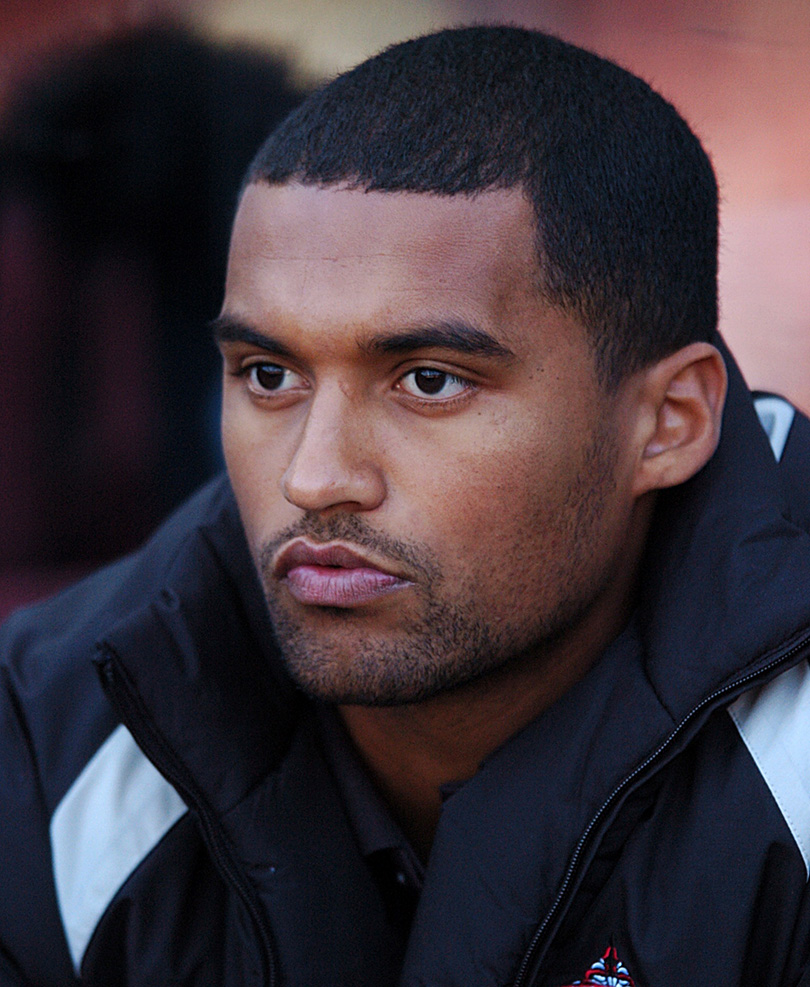
That snowballed: within two or three months of drinking every day, I had a problem that I couldn’t stop. I was living on my own with my dog. And because by that point my drinking had become a problem, my missus wasn’t letting me see my kids.
So you’re trying to stop drinking to get your kids back, all while being terrified about trying to get back into work. Let me just have a drink today and I’ll sort things out tomorrow. It was a vicious circle where I was addicted to drink and couldn’t stop. The depression was this heavy cloud sitting on me. I’d played in the Premier League at 11-and-a-half stone; by this time I was nearer 17.
All of a sudden your health has gone, your fitness has gone, you haven’t got a job and your money is running out. You can’t see your kids. You’re drinking all the time. I didn’t know how I was going to get out from under it – what was I even going to tackle first?
The breakdown
I didn’t tell anyone about my problems. I was doing live commentary at Leicester matches absolutely smashed out of my face.
I was also coaching down at Leicester around this time, and there was one thing that really got me. I’d do bits and bobs with the kids and always be up for going down at late notice, but I’d be doing it having got in at 7am from a night out. You’d be leaving at 8-9am with a bus-load of kids to an away game.
Back then, all I had to do then was be a support coach – until one day I wasn’t. I turned up and the main coach wasn’t there. I was still drunk. “Pipes, you take the lads up to Manchester.” And that was the beginning of the end – I pretty much broke down there and then. Obviously I wasn’t going to do drive a bus-load of kids in my condition.
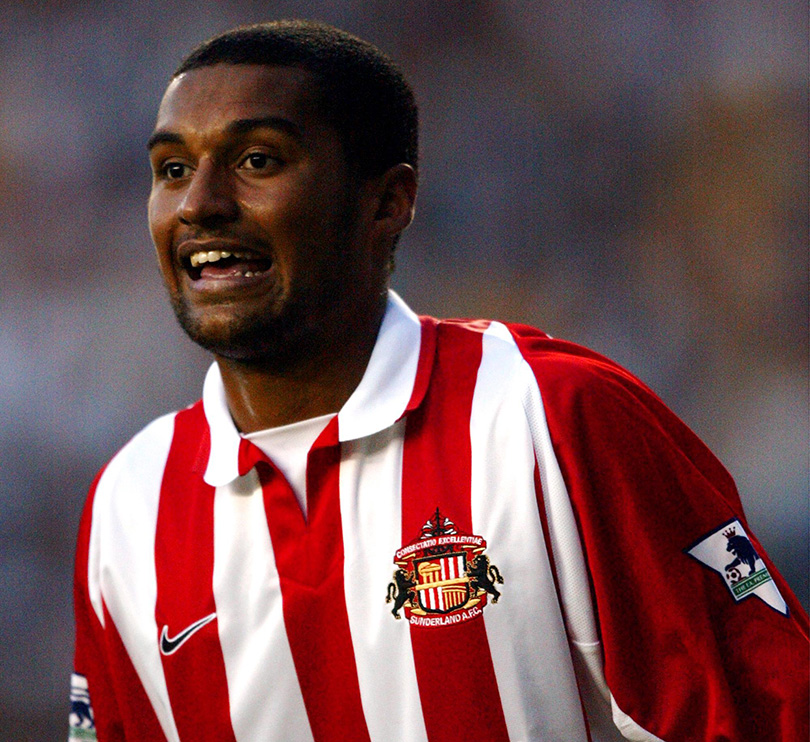
It still wasn’t quite the end, though. A month or two after that I was no longer at Leicester, even as a bit-part coach, and wasn’t really leaving the house. What people don’t tell you is that when you drink most of the time and you’re not drunk, you have anxiety problems. You’ve used drink for the last two years as your mate, to give you some confidence. All of a sudden you haven’t got it in your system to even say hello to neighbours. I’m an outgoing person normally, but drink got the better of me. I didn’t even want to leave my front door; I was totally changed as a human being.
Because it wasn’t getting better, I decided more drink and valium would help me. Then all of a sudden I’m taking five or six of those a day and drinking two litres of whisky to wash them down. You’re ending up in hospital and you don’t even know why; you just wake up there.
Another chance
And so we’re back at the start of this story; with my family not knowing what to do or how to deal with me.
It was my mum who got in touch with the clinic Sporting Chance. They asked me to come down, said that the PFA would pay for it, but said I had to be sober – you’ve got to want to do it yourself. You can’t just have people put you in there.
I managed to stay sober for one day, the first time in over a year. But when I heard what they had in store for me, I wasn’t having any of it. I was going to get my own horse to look after, and I was going to go to this thing called AA, to talk deeply about my experiences in a room full of strangers. No thank you, this place is not for me. But they also said they’d help me fall back in love with football; that they would have a coach come in, Jon Goodman, who later ran the Nike Academy. I agreed.
It’s a little cottage on a Champneys resort in the middle of a Forest, down near Southampton. I was there for about six to eight weeks, and it was so peaceful that I didn’t want to leave. I didn’t drink. The doctor told me I’d damaged my liver beyond repair, but he also told me that it wasn’t too late to turn my life around. Coaching under John, meanwhile, made me think that it was exactly what I wanted to do with my life – I wanted people to look up to me like they did him.
So I came out and I had a big decision to make about where my life was going. I set up my own coaching schools, Jon Rudkin kept his word and took me on as a coach with Leicester’s under-15s, and I rebuilt my relationships with family members who I’d let down over the years. I became closer than ever to them. In that time, I decided that one day I would own my own academy where I was someone like Jon Goodman, who coached and managed a group of players every day.
Into the light
And then a BTEC opportunity came along, which led to the birth of the Football & Sports Diploma Academy in Leicester. I wanted to make it relative to me and my story from growing up.
In a funny way, the lads that I take on now are the ones that were like me after football: they’re inner-city boys, and you can tell that they’ve got going through their heads, ‘What am I going to do now?’ Most of them don’t want to go to university, they don’t know what they have a passion for, but they’re good at football. So we use that as the carrot to help get them some life experience – and early on, too.
We do all sorts with them, and invite lots of different speakers in; the most recent was one of the youngest head teachers in the country, who came in and spoke about emotional intelligence for an hour. Normally you’d think that the boys wouldn’t have much time for a man in a suit speaking about a subject like that, but the response we got was absolutely incredible.
It’s coming up to two years now, and I really believe in the project. We’ve got 30 lads now. There’s probably 12 of them who would have gone to a normal college, had aspirations to go on and be footballers. Some of them know they’re not great at football but will get better with us, and might want to go to university once they’ve done their three years of BTEC. But then we’ve got some boys who would have gone to no mainstream college at all and ended up on the streets because they’ve got no guidance. Once you’re in something like that, you have a responsibility.
The hardest time of my life was not knowing what I wanted to do. But luckily, with the amazing support I had around me, I found a way through.
Interview: Joe Brewin
Need support? Worried about someone? CALM’s (that's the Campaign Against Living Miserably) helpline and webchat are open daily 5pm-midnight. Get it here.
Alternatively, you can get in touch with Samaritans on 116 123 – 24 hours a day, seven days a week. If you'd prefer to write an email, contact jo@samaritans.org
SEE ALSO Marvin Sordell column: It’s time to tell you about my depression
